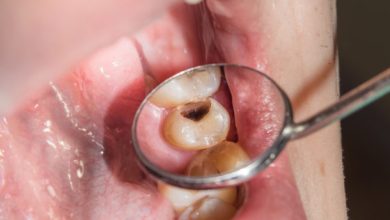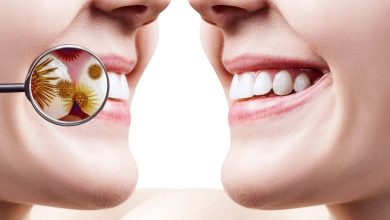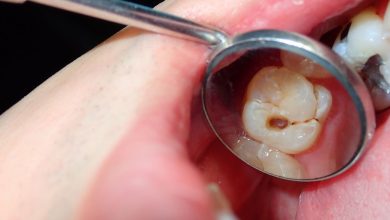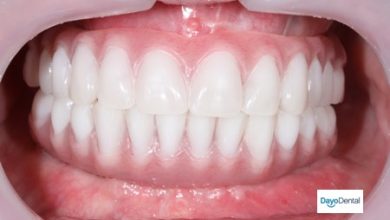Can a Tooth Decay Cause Headaches? Learn the Surprising Link
Yes, tooth decay can cause headaches due to the close proximity of the dental nerves to the head. Tooth decay can be more than just a dental issue.
In fact, it can also result in headaches. The dental nerves are located in close proximity to the head, and when tooth decay occurs, it can cause inflammation and irritation in these nerves. This, in turn, can lead to headaches.
The severity of the headaches can vary, ranging from mild discomfort to debilitating pain. If you are experiencing persistent headaches and also have dental issues such as cavities or tooth decay, it is worth considering that they could be related. Seeking dental treatment for tooth decay may not only help with your dental health but also alleviate any associated headaches.
The Relationship Between Dental Health And Overall Well-being
htmlImportance of dental health in maintaining overall well-being: Maintaining good oral hygiene is essential for preserving your overall well-being. While tooth decay is commonly associated with dental issues, it can also have an impact on other areas of your health, including headaches.
Tooth decay occurs when the enamel on the surface of the tooth becomes weakened or deteriorated due to plaque and tartar buildup. When left untreated, decay can lead to infections in the tooth’s pulp, which contains nerve endings. These infections can cause intense pain and discomfort, extending to surrounding areas such as the jaw and head.
It is believed that certain dental conditions, like bruxism (teeth grinding) and temporomandibular joint disorder (TMJ), can contribute to headaches. The tension and strain on the muscles and ligaments around the jaw joint can radiate pain to other parts of the head.
In conclusion, maintaining good dental health is crucial not only for strong teeth and gums, but also for overall well-being. If you experience persistent headaches, it is advisable to consult both a dentist and a medical professional to identify the potential underlying causes, including the role of tooth decay.
How Dental Problems Can Trigger Headaches
How Dental Problems Can Trigger Headaches
Tooth decay can be a culprit behind frequent headaches. When a tooth decays, it can lead to infections and inflammation, impacting not only the tooth but also the nervous system. Infected teeth release toxins that can travel through the blood vessels and affect various parts of the body, including the head.
Role of tooth decay in causing headaches
The presence of tooth decay can trigger headaches due to the inflammation it causes. As the decay progresses and reaches the inner layers of the tooth, it can lead to an infection known as a tooth abscess. This infection can cause severe pain in the affected tooth and spread to nearby areas, including the jaw and head.
Impact of infected teeth on the nervous system
Infected teeth can have a detrimental effect on the nervous system, potentially leading to headaches. The toxins released by the infection can travel to the brain and cause inflammation, which may result in headache symptoms. Additionally, the pain associated with infected teeth can also contribute to tension headaches or migraines.
The link between tooth abscesses and headaches
Tooth abscesses, which are caused by severe tooth decay, can directly cause headaches. The pressure and inflammation from the abscess can irritate surrounding nerves and tissues, leading to headache pain. Treating the dental issue and resolving the abscess can often help alleviate the associated headaches.
Exploring The Science Behind Tooth Decay-headache Connection
Multiple studies have found a link between tooth decay and headaches. One possible explanation is the role of inflammation. When tooth decay occurs, the tooth becomes damaged, allowing bacteria to enter the inner layers of the tooth. This triggers an immune response, leading to inflammation. The release of inflammatory compounds can travel to nearby nerves and blood vessels, ultimately causing headaches.
Another contributing factor is the impact of oral bacteria. The mouth is home to numerous bacteria, including some that can cause tooth decay. These bacteria produce acidic byproducts that can irritate the nerves in the mouth and head, potentially triggering headaches. Additionally, the toxins released by oral bacteria can enter the bloodstream and affect overall health, including headache development.
Understanding the connection between tooth decay and headaches is crucial for both oral health and general well-being. Proper dental hygiene, regular check-ups, and timely treatment of tooth decay can help prevent not only dental problems but also headaches associated with them.
Recognizing The Symptoms Of Tooth Decay-related Headaches
Recognizing the symptoms of tooth decay-related headaches is crucial in order to properly address and treat the issue. Common signs and symptoms may include pain or pressure in the temples or forehead, aching or throbbing pain that worsens with jaw movement, pain or sensitivity in the teeth, and neck and shoulder discomfort. Differentiating dental headaches from other types of headaches can be challenging, but dental headaches are typically localized to the mouth, jaw, and face, whereas other headaches may radiate to different areas of the head. Understanding the importance of dental check-ups is essential for preventing headaches associated with tooth decay. Regular check-ups can help identify and treat dental issues before they worsen, potentially preventing tooth decay-related headaches. Maintaining good oral hygiene and seeking immediate treatment for dental problems can greatly reduce the occurrence of these headaches.
Treating Tooth Decay-induced Headaches
Addressing tooth decay is crucial not only for good oral health but also for overall well-being. Dental headaches, which stem from dental issues like tooth decay, can cause significant discomfort. By treating tooth decay, you can effectively alleviate these headaches and restore normalcy to your life.
Dental treatments play a vital role in combating tooth decay-induced headaches. Procedures such as fillings, root canals, and extractions might be recommended based on the severity of the decay. These treatments aim to remove the decayed part of the tooth and restore its proper function.
It is essential to remember the significance of addressing the underlying dental issues causing the headaches. Merely addressing the pain or using temporary relief methods may not provide long-lasting solutions. Collaborative approaches between dentists and healthcare professionals can enhance treatment outcomes for dental headaches. This collaborative effort ensures that the dental issues are given the necessary attention, alongside the management of the associated headaches.
Prevention Strategies For Dental Headaches
Can a Tooth Decay Cause Headaches?
Implementing Proper Oral Hygiene Practices To Prevent Tooth Decay
Proper oral hygiene practices are crucial in preventing tooth decay and related headaches. Brushing your teeth at least twice a day using a fluoride toothpaste and flossing daily help remove plaque and bacteria that contribute to decay. Remember to clean your tongue, as it can harbor harmful bacteria. Avoid plaque buildup by limiting sugary and acidic foods and drinks, and rinsing your mouth after consuming them. Use a mouthwash with fluoride to strengthen teeth and prevent decay. Consider using an electric toothbrush for more effective cleaning. Additionally, replace your toothbrush every three to four months or sooner if the bristles are frayed.
Regular Dental Check-ups And Cleanings For Early Detection And Intervention
Regular dental check-ups and cleanings are essential for early detection and intervention of tooth decay and associated headaches. Visit your dentist at least twice a year to catch any dental issues before they worsen. During these appointments, your dentist will perform thorough examinations and take X-rays to identify decay or other dental problems. Professional cleanings by dental hygienists remove hard-to-reach plaque and tartar. Early intervention can prevent tooth decay from progressing to more severe stages and potentially causing headaches.
Lifestyle And Dietary Modifications To Promote Dental Health And Reduce Headaches
Incorporating lifestyle and dietary modifications can promote dental health and reduce the risk of headaches caused by tooth decay. Avoid smoking as it weakens the immune system and damages oral tissues, making it easier for decay to develop. Manage stress, as it can lead to teeth grinding or clenching, increasing the chances of decay and headaches. Maintain a well-balanced diet rich in calcium, vitamin D, and phosphorus, as these nutrients strengthen teeth and promote oral health. Avoid excessive consumption of sugary and acidic foods and drinks, which can erode tooth enamel and contribute to decay. Drink plenty of water to keep your mouth hydrated and stimulate saliva production, which helps neutralize acids and prevent decay.

Credit: abqorthodontics.com
Frequently Asked Questions On Can A Tooth Decay Cause Headaches?
How Do You Know If Your Headache Is From Your Teeth?
Headaches from teeth can be detected if you experience pain in your jaw or teeth while having a headache. It could be a result of teeth grinding, jaw clenching, or an underlying dental issue. Consulting a dentist can help determine if your headache is related to your teeth.
What Symptoms Can Tooth Decay Cause?
Tooth decay can cause various symptoms such as tooth sensitivity, pain or discomfort, visible holes or pits on teeth, bad breath, and changes in the color or appearance of teeth. It’s important to address these symptoms promptly to prevent further damage to the teeth and gums.
How Do You Get Rid Of A Tooth Headache?
To relieve a tooth headache, try these remedies: 1. Rinse your mouth with warm saltwater. 2. Apply a cold compress to the affected area. 3. Take over-the-counter pain relievers like ibuprofen. 4. Avoid hard foods and chew on the opposite side.
5. Visit a dentist if the pain persists or worsens.
Does A Tooth That Needs A Root Canal Cause Headaches?
Yes, a tooth that needs a root canal can cause headaches.
Conclusion
Tooth decay can indeed cause headaches. The connection between oral health and overall well-being is well-established, with dental issues often leading to systemic problems. The bacteria involved in tooth decay can travel through the bloodstream and contribute to inflammation, which may trigger headaches.
It is crucial to prioritize good oral hygiene and seek timely dental treatment to mitigate the risk of tooth decay-related headaches. Remember, caring for your teeth goes beyond just a beautiful smile; it impacts your overall health!





